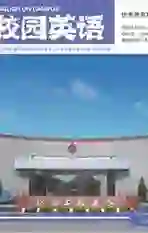DifferentPerspectivesonLiteracy
2015-05-30谢果
【Abstract】Aiming to further understanding Literacy in foreign language teaching, I explored Kerns notion of Literacy and think about how it has shaped the work of teachers. There are different definitions of Literacy among theorist, and many conceptions can help language learners to contextualize and interpret what they read. Kern proposes as a working definition for the notion of Literacy that weaves together linguistic, cognitive, and sociocultural strands. In this aspect, teacher needs own the ability to combine a focus on language use in social contexts, and this is crucial in foreign language teaching.
【Key word】literacy; sociocognitive; linguistic; socialcultural
Referring to reading and writing in foreign language teaching, Literacy is socially constructed and varies widely in its assumptions, goals, and methods across diverse communities, institutions, and cultures (Kern, 2000).
Different Definitions of “Literacy”
1. A Sociocognitive view of literacy and its principles
Literacy is the use of socially-, historically-, and culturally-situated practice of creating and interpretating meaning through texts (Richard Kern 2000, p. 16). Kern (2000) considers seven principles that arise out of this definition and they are Literacy involves interpretation, collaboration, conventions, cultural knowledge, problem solving, reflection and self- reflection, language use.According to Kern (2000), these principles, although here framed in terms of reading and writing, are not unique to literacy, but can be applied broadly to human communication in general. Her literacy- based approach- represents a style of teaching educators ought to consider if they wish to prepare learners for full participation is societies that increasingly demand multilingual, multicultural, and multitextual competence(Kern 2000).
2. Other Perspectives on Literacy
According to Brandt, he puts Literacy, a part of the highest human impulse to think and rethink experience in place.The notion of ‘literacy as substance, what Street (1984) has called the ‘autonomous model of literacy, represent the mainstream conception of literacy, represents the mainstream conception of literacy in many societies and educational systems(Kern, 2000).The point as far as literacy is concerned is one that Widdowson made over twenty years ago: there are communicative abilities that relate to mode that go beyond linguistic skills related to medium.
One implication of Vygotskys theory is that literacy (and indeed cognition in general) is not the personal, idiosyncratic of an individual, but rather a phenomenon created by society and shared and changed by the members of society (Kern, 2000).
Gee asserts that because all literacy practices are tied to particular Discourses, discussions of reading or writing need to be contextualized in term of particulars(Kern,2000).
The Brazilian educator Paulo Freire, argued that an important aspect of literacy is critical reflection on how language shapes our representations of our experience and the world. She thought literacy is not simply a process of acquiring and sharing information, but a state of social and political consciousness- one which permits critical examination of the existing social order.
Literary is not the narrow ability to deal with texts but ht broader ability to deal with other people as a writer or reader (Deborah Brandt, 1990)
Reflection on Kerns Notion of Literacy.There are different definitions of Literacy among theorists, but most of them agree to help learners to contextualize and interpret what they read. And many educational psychologists have studied the behavior of expert readers and writers, in order to identify strategies that can be directly taught to less proficient readers and writers (Kern, 2000). Here I will focus on Kerns notion of Literacy and think about how it has shaped the work of teachers?
Kern proposes as a working definition for an expanded notion of literacy, one that weaves together linguistic, cognitive, and sociocultural strands. For a linguistic perspective, literacy involves the ability to recognize and produce graphic representations of words and morphemes, and knowledge of the conventions that determined how these elements can be combined and ordered to make sentences (Kern, 2000). Under such a circumstance, teacher needs help students to understand relationships between oral and written discourse. In the meanwhile, teacher can develop learners extended discourse competence and written communication skills by using some activities of Behavioral Paradigm, such as Audiolingual method, students orally recite the basic sentence patterns and grammatical structures.
As for a cognitive perspective, some early writings of Huey(1908) and Thorndike(1917) have been acknowledged that reading required more than perceptual and sensory-motor skills; it also demands the readers active participation at a cognitive level. Like reading, writing also required active thinking and problem solving. On this point, teacher has to shift paradigms in language teaching, and he or she can use process writing (planning, drafting, revision, editing, and publishing).
For socialcultural perspective, Kern (2000) considers reading and writing are communicative acts in which reader and writing are communicative acts in which readers and writers position one another in particular ways, drawing on conventions and resources provided by the culture. In terms of this, teacher could help students to attend the dynamic, dialectical relationship between words and world. And teacher can teach foreign languages for specific purposes, mentioning the language history, the language of science, and the language of literature.
In foreign language education, teacher needs own the ability to combine a focus on language use in social contexts(essential to communicative approaches) with an additional component of active reflection on how meanings are constructed and negotiated in particular acts of communication (Kern,2000).
Reference:
[1]Kern,R.(2000).Literacy and language teaching.Oxford:Oxford University Press.
作者簡介:谢果(1985年12月),女,硕士,湖北荆州人, 汉族。研究方向:系统功能语言学。
